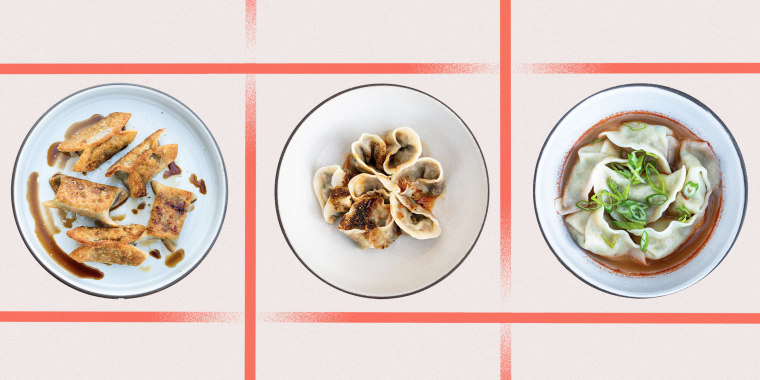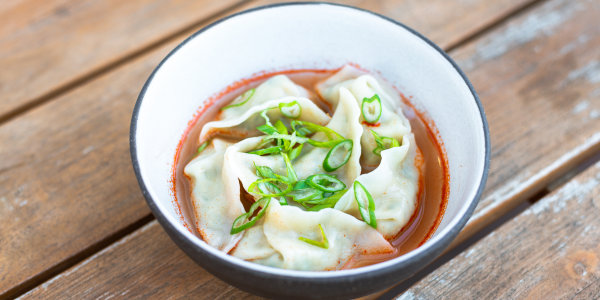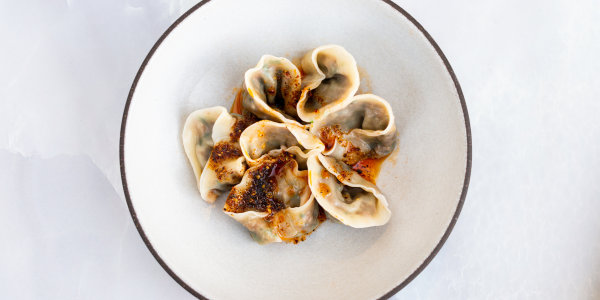This Lunar New Year, I’ll be working.
This isn’t too dissimilar from Lunar New Years of the past: Observed on the first day of the year for calendars following the lunar cycles of the moon, the official date of Lunar New Year typically falls in late January or early February — far after the solar calendar version of New Year’s Eve and New Year’s Day has commenced. (Being Chinese American, our calendar follows a lunisolar format, not a purely lunar format.)
Growing up in a predominately white suburb of Seattle, far away from downtown’s Chinatown, Lunar New Year felt like an oddity I couldn’t quite explain. It remained unclear to my peers why I was unavailable for play or study groups on the date, especially if it fell on a weekday (like it does this year — Friday), and it was certainly no excuse for missing school. By age eight, I stopped referring to it as “new year” because it caused more confusion than any sort of romantic "cross-cultural exchange," and I specifically avoided mentioning the potlucks that were customary for my family and the small Chinese community we were part of.
In retrospect, I can see part of that was a shame in my lack of vocabulary about my own culture — I stumbled every time I had to explain how a lunar calendar even worked — but also a quiet desire to keep this small part of my life private. When my teachers pulled me out of my chair to tell everyone about the upcoming year’s zodiac sign — “Jenny! What auspicious sign are you?” — I felt like a display animal, made readily available for my peers to poke and prod if it suited them.
At these potlucks, however, things were different. Despite all my grumbling about having to get dressed up and occasionally being forced to perform violin for aunties and uncles, these multi-household celebrations were a place of freedom. More than anything, I think I absorbed the way it made my parents feel — being able to speak freely in their native tongue, eat a whole host of regional Chinese foods (particularly when enabled by some friendly competition between aunties) and play solitaire or mahjong while sputtering sunflower seeds. Their body language changed in those hours.
Instead of assessing how best to fit into the small space allocated for them at work — the diminutive lab scientist, the data architect with the accent — their bodies expanded, their laughs grew more boisterous, their commentary tinged with snark. My mother, who aspired to be a writer before acquiescing to the sciences in order to immigrate here, showered us with a litany of colorful vocabulary — flowery descriptors of dishes, detailed accounts of scenes in books and shows — that far surpassed what I could understand in my elementary-school-level Mandarin. My father would drink pi jiu and make sharp jokes — hilarious interludes in this setting but lost in translation when told in English. My chest swelled a little seeing them this way, casually shrugging off the labels others propelled upon them. My mother isn’t "shy" or "hard to understand," you’re just not as smart as her, I would think, defiantly; my dad isn’t "awkward," you just can’t understand his humor because you only speak one language.
I didn’t call any of this "resistance," and it was never framed in such a light in my household. But now, as I find myself addressing Lunar New Year for the media every year, I can’t help but think of it this way. Just as my father is crystal clear that chu yi, or "first of the year," is only said in reference to Lunar New Year (never for Jan. 1), I resist offering some idealized version of my family gathered together around a table making dumplings. The truth is, as far as I can recall, everyone in my household has worked on this day — or at least when it landed on a weekday. Like many aspects of our identity, Lunar New Year just had to wait: Just as my mother made her famous liang fen when she came home, smelling like laboratory hand sanitizer, I’ll be pinching my dumplings after I finish my regular duties and teaching class.
What feels satisfying about this year, however, is that my work will be for my own business. I’ll be teaching a virtual class for my nonprofit, cooking a dish named "Saviors" from our Asian in America exhibition series, and discussing the implications of white saviorism and white supremacy with our small group of guests.
As much as some things have stayed the same — namely, that Lunar New Year remains a nonofficial holiday — others, thankfully, have progressed forward.



